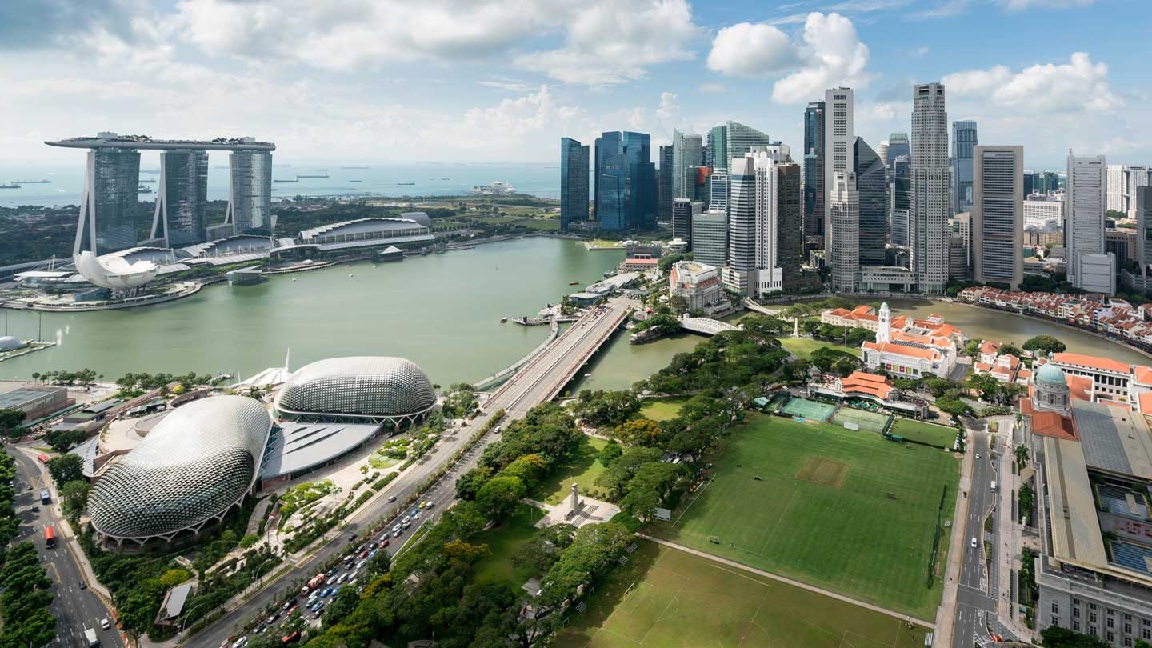
Singapore, a nation synonymous with innovation and efficiency, is rapidly establishing itself as a global leader in Artificial Intelligence (AI). This forward-thinking island nation is harnessing the power of AI to revolutionize various sectors, from urban planning and healthcare to finance and sustainability. This article explores Singapore’s unique approach to AI development and its potential to shape the future.
A Government at the Forefront
Singapore’s commitment to AI is evident in its proactive approach. The government launched the national AI Singapore program in 2017, aiming to bridge the gap between research institutions and the vibrant AI startup ecosystem. This initiative fosters collaboration, facilitates knowledge sharing, and invests in talent development to create a robust AI workforce.
Beyond funding, the government actively promotes an environment conducive to AI innovation. Initiatives like the Singapore Model AI Governance framework emphasize responsible AI development, ensuring ethical considerations are at the forefront. This focus on responsible AI not only builds trust but also positions Singapore as an attractive destination for international AI companies.
The government of Singapore provides different grants and support initiatives that can greatly lower the expenses associated with developing and implementing AI for businesses. These financial benefits aim to make AI more readily available and motivate companies to investigate its possibilities.

A Thriving Ecosystem for Innovation
Singapore fosters a dynamic AI ecosystem where startups, established corporations, and research institutions work together to push the boundaries of AI technology. AI Singapore serves as a catalyst, connecting stakeholders and providing access to resources and infrastructure.
The city-state boasts a flourishing startup scene specifically focused on AI. These startups are tackling various challenges, such as developing AI-powered solutions for smart cities, personalized healthcare, and automated financial services. The presence of venture capital firms and a supportive regulatory environment further fuel the growth of these innovative companies.
Transforming Industries with AI
The impact of AI is already being felt across various sectors in Singapore:
- Smart Cities: AI is being used to optimize traffic flow, manage energy consumption in buildings, and improve waste management systems. Imagine intelligent transportation networks that adjust traffic lights based on real-time data or buildings that automatically regulate energy use for optimal efficiency.
- Financial Services: AI-powered algorithms are revolutionizing the financial sector by streamlining processes, enhancing fraud detection, and personalizing financial products for customers.
- Healthcare: AI is playing a crucial role in medical diagnosis, drug discovery, and personalized treatment plans. AI-powered tools can analyze medical images to detect diseases at an early stage or assist doctors in developing targeted treatment strategies.
The Road Ahead: Challenges and Opportunities
While Singapore’s AI journey is impressive, there are challenges to address:
1. Data Privacy and Security: As AI relies heavily on data, ensuring data privacy and security is paramount. Singapore is actively developing frameworks to address these concerns and build trust with the public. In addition, developing successful AI models necessitates the utilization of extensive and high-quality datasets. Businesses must establish strong data management techniques to guarantee they possess the essential data for their AI projects.
2. Ethical Considerations: The potential for bias in AI algorithms needs careful consideration. Singapore’s focus on responsible AI development is crucial to mitigate risks. AI algorithms have the potential to adopt and magnify biases present in the data they are trained on. It is important for businesses to be conscious of these biases and put measures in place to promote fair and ethical AI practices. Data privacy is also a significant priority, with businesses being required to comply with data protection laws and responsibly handle user data when utilizing AI technologies.
3. The Future of Jobs: Automation through AI may lead to job displacement in certain sectors. Singapore is investing in reskilling and upskilling initiatives to prepare its workforce for the changing job landscape.
In Conclusion
Despite these challenges, Singapore’s commitment to responsible AI development, its thriving innovation ecosystem, and its government’s proactive approach position the nation as a frontrunner in the global AI race. By harnessing the power of AI responsibly and ethically, Singapore is well on its way to achieving its vision of a smarter, more sustainable, and future-proof nation.


